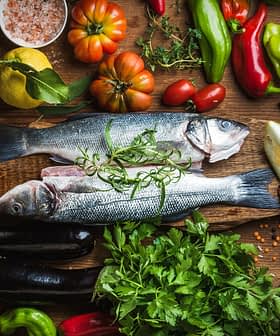Plant-Based Diet Reduces Food-Bourne Infection Risk in Mice

 Jan. 31, 2020 09:36 UTC
Jan. 31, 2020 09:36 UTCA recent study found that a plant-based diet rich in pectin reduced the risk of E. coli infections in mice, suggesting potential health benefits of consuming fruits and vegetables. The research, conducted by Vanessa Sperandio at the University of Texas Southwestern Medical Center, indicates that pectin can inhibit the virulence of E. coli strains by maintaining levels of galacturonic acid in the gut, although further studies are needed to determine the impact on human diets.
Food-borne illnesses, such as those due to a certain strain of Escherichia coli (E. coli), cause debilitating and potentially deadly infections throughout the world every year.
A recent study found a plant-based diet reduced the risk of the maladies in mice. While it is too soon to apply the results to humans, the investigation adds to the body of evidence that suggests eating a diet rich in fruits, vegetables and whole grains is beneficial for health.
Plant-rich diets are high in pectin, a gel-like substance found in many fruits and vegetables. Pectin is digested by the gut microbiota into galacturonic acid, which we find can inhibit the virulence of EHEC.
The strain of E. coli, called EHEC, is currently under investigation in regard to a gastrointestinal infection outbreak associated with romaine lettuce, reported authors of the research at the University of Texas Southwestern Medical Center. EHEC causes dangerous inflammation in the colon that manifests in vomiting and bloody diarrhea.
“There has been a lot of hearsay about whether a plant-based diet is better for intestinal health than a typical Western diet, which is higher in oils and protein but relatively low in fruits and vegetables,” researcher Vanessa Sperandio, professor of microbiology and biochemistry, said in a press release. “So we decided to test it.”
See Also:Health News“Plant-rich diets are high in pectin, a gel-like substance found in many fruits and vegetables,” she added. “Pectin is digested by the gut microbiota into galacturonic acid, which we find can inhibit the virulence of EHEC.”
Sperandio explained that intestinal pathogens such as EHEC try to establish a foothold among the beneficial bacteria that reside there. The community of microbes in the gut includes harmless varieties of E. coli as well as other strains, many of which aid digestion and serve as a barrier to infection-causing bacteria. EHEC breaks through the barrier by secreting T3SS, a substance that triggers inflammation and produces symptoms of the infection.
According to Sperandio, the study discovered that the beneficial E. coli strains use different sugars for food than the pathogenic ones such as EHEC. Moreover, another strain of beneficial gut bacteria breaks down the pectin in fruits and vegetables to form the sugar galacturonic acid.
Once this acid gets low, EHEC and other gut pathogens increase the secretion of T3SS, thus becoming more virulent. Because regularly eating foods containing pectin helps maintain levels of galacturonic acid, the gel-like substance suppresses the increased virulence.
The researchers observed that pectin’s effects led to improved resistance to EHEC. Compared to mice fed regular food, those on the pectin-enriched food had a much lower incidence of becoming ill from the pathogen. In addition, mice on the diet with pectin had 10,000 bacteria in the cecum, while those on the regular diet had one million bacteria in this area, Sperandio noted.
However, further research is needed before it is proven that eating more fruits and vegetables is likely to reduce the risk of a food-borne infection like EHEC, Sperandio told Olive Oil Times.
“At this point, it would be jumping to conclusions,” she said. “I’d rather be careful here, given the complexity of pathogen-host associations and the fact that our studies are in mice. Therefore, it’s a bit early to translate these findings to the human diet.”
However, the authors did conclude that dietary sugar availability, such as the galacturonic acid created from pectin, can influence the relationship between the bacterial community in the gut and intestinal pathogens, along with disease outcomes.
The study was published in Nature Microbiology.


 Mary West
Mary West






